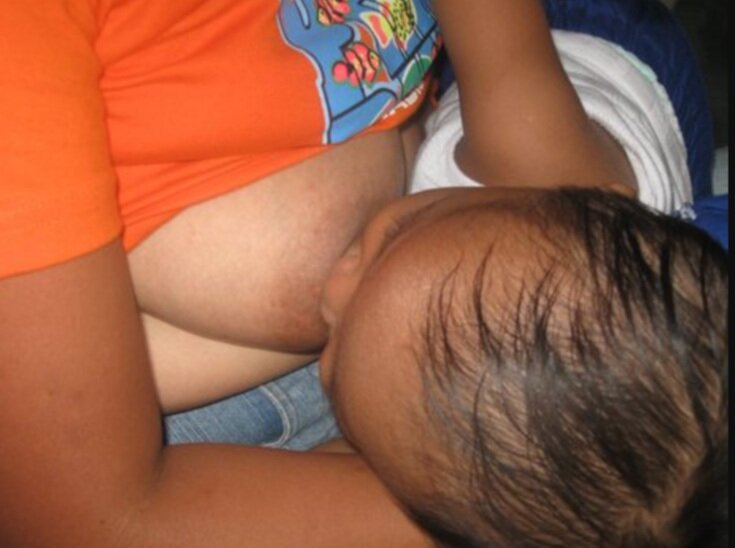Victoria is eating watermelon and happily nursing her six-month-old baby at her family’s summertime reunion. Her cousin, Emily, sits down beside her and shares with great authority, “It’s time for you to give up that breastfeeding. Your baby’s about to get her first tooth, and a biting baby is not good for you OR the baby. Anyway, it’s time to start REAL food now!”
Victoria is proud of the fact that her daughter has been exclusively breastfeeding--until now. She had planned to keep breastfeeding well into her baby’s second year of life. But now her cousin’s words cause her real concern.
The Science: Biting, Teething and Starting Solids
It’s always a delight to see that tiny glistening on the gumline as baby’s first tooth appears, anytime between 5 and 10 months of age. The good news is that when a baby is properly latched the tongue covers the teeth so that she cannot bite her mother.
However, mothers may notice that a baby who is no longer breastfeeding with enthusiasm may start to slide down the breast onto the nipple when she becomes tired, satisfied or bored. Since he CAN bite in this position, mothers with six-month-olds quickly learn to take a tired, satisfied or bored baby off the breast.
Though breastfeeding will continue to be your baby’s primary source of nutrition for the next month or so, starting solids does allow a baby to explore textures and to practice moving food around with her tongue. A six-month-old can sit well enough to safely eat and to explore solids. She has lost the tongue-thrust reflex that previously pushed food out of the mouth. Her intestines have matured and are ready to handle the new proteins in solid foods. And finally, a six-month-old loves to imitate her parents. She will soon grab that spoon from mother’s hand or take that cracker from her sister.
“Ah-Ha” Moment: How the HUG’s Information Helps this Mother
This morning Victoria sees evidence of her baby’s first tooth and delights in her baby’s growing and developing. She knows that continuing to breastfeed is best for her baby and best for her own health, and she is happy, rather than worried, now that she knows how to keep from being bitten. Also, at her baby’s six-month-check-up, Victoria learns that the natural antibiotics in breast milk, and its Ph, will impede bacterial growth and prevent dental decay.
This knowledge gives Victoria the confidence to let her baby try some watermelon – and to tell her cousin that she plans to keep breastfeeding!


